🌐👀 Global Eyes
🗞 The end of Uribismo? ... UN peacekeeping in Africa. ... Hezbollah and the Captagon Express. ... Jammu and Kashmir ... Notes on the oil deal. .. A guide to US missiles ... and much, much more.
I’m so sorry if this is the second time you’ve seen this. Substack is telling me a “network error” interfered with the mailing. I don’t know what that means, but I see that it was opened much less than usual, so perhaps it was sent to some but not all of you? Since I can’t tell who didn’t receive it, I’m sending it to everyone again. To apologize for the annoyance, I’ve taken off the paywall.
Bonus: better proofreading this time.
Let’s do things today in reverse order. Why not.
🌐 Global
A new paper from the Asian Development Bank projects that the severe disruptions in education during the pandemic will limit schoolchildren’s employment opportunities and earning potential for years to come, leading to significant declines in global GDP. India will be most severely affected. Moreover, these losses compound over time:
Economic costs are expected to be huge, both in terms of earnings losses for individuals and the reduction in long-term productivity and growth for economies. Without appropriate policy support, disruptions in school education will translate into fewer students transitioning to higher education, higher unemployment, and reduced earnings potential. Disrupted education will have a long-term compounding impact, not only on many children’s future well-being, but also on socioeconomic outcomes such as economic growth, poverty, and inequality. …
The scarring effects are greater in economies with significant student populations from rural areas, those in the poorest and second wealth quintile. Learning and earning losses are also significant in economies where the share of unskilled labor employment in the overall labor force is high.
🌎 Americas
🇲🇽👨🏻⚖️ A judge has suspended construction on one of Mexican President Andres Manuel Lopez Obrador’s pet projects, a tourist train which was to connect the main cities and tourist areas of the Yucatan peninsula, citing the “imminent danger” of irreversible environmental damage. (In Spanish.)
🇧🇷🗳 Former President Luiz Inacio Lula da Silva has reclaimed a double-digit polling advantage over Jair Bolsonaro. According to a new poll, in a second-round runoff Lula would win 54 percent of the vote and Bolsonaro 35 percent. (In Portuguese.)
🇨🇴🗳 Colombia elections: The end of Uribismo? Gustavo Petro secured a monumental first-round win, but there’s no guarantee of a triumph for the left in the second round:
The second-place candidate, Rodolfo Hernández, who finished somewhat surprisingly with 28.1 percent, renders the outlook more complicated for the Left than if Fico, a traditional conservative, had made it to the second round. Hernández, a centrist, pragmatic, politically incorrect populist, entered the race as a kind of outsider. Launched as an anti-establishment choice, he now positions himself as the ant-Petro candidate who can scoop up support from Fico voters with relative ease to triumph in the runoff.
🇲🇽⛈ Strongest Pacific hurricane ever to make landfall in May hits southern Mexico.
🇦🇷💸📈 With 58 percent inflation, nobody in Argentina knows the price of anything:
[A]s prices soar and scatter, people are losing their bearings. No wonder, when a two-hour domestic flight costs the same as a month of college tuition, a pair of sneakers is equal to the minimum monthly social-security payment, and a new iPhone goes for half a year’s average rent or more. Price-tags also vary wildly from store to store, and tracking down the daily essentials at the least-unaffordable rates is a drain on time and energy for working Argentines.
🇨🇱 Chile’s identity crisis: Mapuche still under fire:
After vowing to do things differently, the Boric administration has invoked a familiar playbook in Mapuche territory. The difficult of breaking with the status quo speaks to the entrenched power of the Right.
🌾 South America isn’t the answer to the global wheat crisis. Amid a growing food crisis provoked by Russia’s invasion of Ukraine, many are hoping South America’s so-called breadbasket might be the solution. But they shouldn’t.
🌍 Africa
🇸🇴🇺🇸 What the US return to Somalia means for the Horn of Africa:
American officials have claimed that the redeployment is due to worsening security conditions in Somalia. This argument is open to question: the security situation is in reality relatively stable. What is without doubt is that the deployment will have a direct influence on US-Russian rivalries in the region. …
It is notable that the American redeployment announcement came days after the electoral defeat of Somali president Mohamed Abdullahi Mohamed (“Farmaajo”). The former Somali president was a close ally of Russia’s new friends in the Horn of Africa—Ethiopia and Eritrea. The newly elected Somali president is much cooler towards Ethiopia and Eritrea. He has also pointedly welcomed the US redeployment.
🇨🇩🇷🇼🪧 Hundreds took to the streets in Kinshasa to call for the expulsion of the Rwandan ambassador, outraged by the allegation that Kigali is supporting the M23.
🇱🇾💣 The Wagner Group littered Libya with landmines:
The mines and booby traps found at the 35 coordinates were hidden inside homes and other structures, in some cases inside furniture and were often activated with a tripwire that was not visible. Mine experts told Human Rights Watch that the mines and booby traps apparently constructed by Wagner operatives were more sophisticated and lethal than those laid by Libyan, Sudanese, or Syrian groups.
Ethiopia
🇪🇹🥷🏻⛔️ Ethiopia has launched a crackdown against an influential armed militia in its Amhara region, arresting more than 4,000 people, including journalists, activists and a former general:
The militia group, known as the Fano, played a key role alongside the federal military in beating back November’s southward advance through the Amhara region by the Tigray People’s Liberation Front, which is fighting an 18-month-long civil war against the government and its allies.
🇪🇹🇺🇳 The United Nations refugee agency registered more than 73,000 Ethiopian refugees and asylum seekers in Sudan last year, many of whom fled fighting in the Tigray region.
🇪🇹 Ethiopia set a world record for displacements in a single year:
Conflict and violence triggered over 5.1 million displacements within Ethiopia in 2021—triple the number reported in 2020 and the highest annual figure ever recorded for a single country.
🇰🇪 Kenya’s two leading presidential candidates want the US to compensate victims of the 1998 embassy bombings:
The renewed focus on the attack and its aftermath comes as lawyers for the victims have begun lobbying US lawmakers to amend a congressionally established terrorism compensation fund to make Kenyan victims eligible. (Paywalled.)
🕊🇺🇳 UN peacekeeping in Africa is working better than you think:
More than a dozen quantitative studies published in top peer-reviewed journals have shown—using different datasets, metrics, time periods and controls—that peacekeepers are protecting civilians. It is one of the most robust findings in the field of international relations, and most of these studies narrow the case selection to peacekeeping in Africa.
The most notable failed missions are the ones people remember vividly—in Somalia, Rwanda, Bosnia, and more recently, Haiti. As tragically as those missions ended, they are not the norm. More frequently—such as in Namibia, Sierra Leone, Côte d’Ivoire, Liberia, El Salvador, Cambodia, Eastern Slavonia/Croatia and Timor Leste—the UN’s state-building missions have succeeded at fulfilling complex mandates and departing. Years later, these countries are not all perfect democracies, but neither are they at war.
🌍 Middle East
🇮🇶🚀 Five rockets landed on the Ain al-Assad base in Anbar province. The base hosts troops from the US-led coalition against ISIS. There were no deaths or damage. An obscure group called “International Resistance” claimed responsibility for the attack on a pro-Iran Telegram channel.
🇱🇧🎭 Lebanon’s election was a masterpiece of Kabuki theater:
… The election, the storyline went, showed that gains by reformist civil society and independent candidates reflected popular Lebanese discontent with the traditional political class. These anti-Hezbollah forces handed a stinging defeat both to Hezbollah and to the established parties, whom the people held responsible for the financial collapse in 2019. And in so doing these new representatives of the people manifestly weakened the terror group by stripping it of the majority it had held in parliament, which—in the narrative, at least—is a real institution through which power is distributed and exercised.
It’s a nice story, to be sure. It even makes internal logical sense. Unfortunately, it’s not real. [In reality] Lebanon is an Iranian-run satrapy which provides a forward operating base for the Islamic Revolutionary Guard Corps in Tehran, which directs Hezbollah. … Lebanon’s political circus and the categories hawked by the Lebanese operatives are meaningless. Their only function is to sucker outsiders into believing they’re real and meaningful in order to sell tickets to Lebanon’s imagination land.
🇦🇪🇮🇱🤝💸🕊 Israel and the United Arab Emirates signed a free trade agreement in Dubai. The deal is the first of its kind between Israel and an Arab state.
🏈🇮🇱 Biden’s visit to Israel could alienate all parties concerned:
Biden believes the visit could improve the standing of Israeli Prime Minister Naftali Bennett and his government in the eyes of Israeli voters … the president “is interested in keeping this government alive” because of the history of his relations with former prime minister and current head of the opposition Benjamin Netanyahu. … The visit is also a signal to Iran, with the message being: “If you don’t want a new nuclear deal, then perhaps we need to change our policies in the region.”
The Americans … “want to please everybody, but they alienate everybody. Bennett is saying, ‘If you push me too hard, you will get Netanyahu.’ Abbas is saying, “If you push me too hard, you will get Hamas.’ It is full of contradictions … If they make concessions to the Palestinians, they will end up toppling the Israeli government.”
💊🇸🇾💶 Hezbollah is smuggling Captagon from Syria to Europe with the help of the Assad regime, pro-Saudi news channel Al-Hadath reports:
The drug, which has been touted by media as “The Amphetamine Fueling Syria’s War” or “The Jihadists’ Drug,” gained notoriety in the mid-2010s for its use and trade by Islamic State fighters.
According to the Al-Hadath report, Hezbollah operatives oversee one of the nartotics production facilities, located in Al-Bassah south of the port city of Latakia, together with Samer Kamal Assad, an influential cousin of Syrian President Bashar Assad. Another cousin, Wassim Assad, is reportedly involved in smuggling the drug from Latakia to Europe.
🇮🇱🗳 Israel needs a national referendum on election reform:
That the Israeli political system is dysfunctional has long been obvious, but this dysfunction now appears to have reached a point of critical mass. Israel is currently led by a prime minister whose party has a total of seven Knesset seats. The governing coalition is composed of ideological rivals brought together by the desire to keep one man out of office, which may be a defensible goal, but not very workable. Coalition Knesset members are leaving left and right, along with long-standing staff and advisers. Ministers are sniping at each other in both public and private. And the government must now be regularly propped up by a party composed of communists and Palestinian nationalists.
All of these absurdities, however, are mere symptoms of a much larger and more serious disease, which is Israeli politics itself—specifically, its electoral system.
🇮🇱🇮🇷🧨🔫 Israel’s defense establishment and the pro-Iran axis are in an arms race:
Ultimately, the Iranian strategy is to surround Israel with as many “fire bases” as it can—from Lebanon, Syria, Iraq, the Gaza Strip, and in the future, from the West Bank, as well as from Iran itself. On the other side of the arms race, Israel is boosting its air attack, ground maneuvering, firepower and intelligence capabilities to take on this threat. Defensively, Israel is also working around the clock to boost its world-leading multi-tier air-defense systems. …
The logic of investing this level of resources in air defenses is based on the concept that the better Israel can defend its home front, cities, population and strategic sites against the worst of the damage of enemy fire, the more this will enable an effective offensive effort.
🇮🇷☢️⚛️ Iran says the recent IAEA report charging it with failure to declare nuclear material at three sites is unfair. “It is feared that the pressure exerted by the Zionist regime and some other actors has caused the normal path of agency reports to change from technical to political.”
🇮🇱🇮🇷🇺🇳 Israel says Iran stole secret UN records to evade nuclear probes:
Iran secured access to secret United Nations atomic agency reports almost two decades ago and circulated the documents among top officials who prepared cover stories and falsified a record to conceal suspected past work on nuclear weapons, according to Middle East intelligence officials and documents reviewed by The Wall Street Journal. (Paywalled.)
Syrian security chaos
🇸🇾☠️🏴☠️ Murders continue in Syria’s al-Hol camp:
[S]ources have reported a new murder in “Al-Hol mini-state” in the far region of south-eastern countryside of Al-Hasakah, where a female Iraqi refugee was found dead and dumped in a valley between the first and second sections which are specified for Iraqis in Al-Hol camp. The victim was found beheaded and shackled with marks of brutal torture on her body. It is worth noting that this is the sixth murder in Al-Hol camp in May. This comes in light of the escalating ISIS cells’ activity in the camp, despite the security campaigns carried out recently by security and military forces.
🇷🇺🇸🇾🛬💣💥 Russia targets Turkish proxies in Syria, explosions heard near US base:
The Russian Air Force carried out an airstrike on the Syrian town of Marea in the northern countryside of Aleppo, targeting Turkish-backed militants belonging to the Euphrates Shield rebel group, according to local media. At the same time, Syrian Arab Army reinforcements arrived at the Menagh military airport in the Aleppo countryside as Russian planes flew over the cities of Al-Bab, Azaz, and Afrin. The events coincide with reports of large explosions near the US base in Al-Omar oilfield, which is illegally occupied by US forces. … Meanwhile, Turkish occupation forces have intensified their bombing campaign over the northwestern countryside of Hasakah governorate, as part of their latest military operation in northern Syria.
🇹🇷🇸🇾⚡️ Turkish forces north of Aleppo have reportedly fired artillery shells on villages and the outskirts of the northern Aleppo countryside.
🇮🇷🇷🇺🇸🇾🥷🏻 Russian, regime, and Iranian-backed militias have laid siege to the Al-Rukban camp in the Syrian desert, near the Iraq-Syria-Jordan border triangle, for 24 days.
🚫🍼🫓 Residents of the besieged camp warn they’re on the brink of famine: “We are out of baby formula. There is no more flour, which is our main staple. Vegetables have run out, as have all basic items like rice, bulgur and oil.”
🇸🇾🇮🇷🇹🇷🛻 Syrian government and Iranian proxies are reinforcing northern Aleppo:
Syrian government and Iranian-backed armed groups deployed forces in villages and towns in northern Aleppo following Turkish threats … The reinforcements include rocket launchers, heavy artillery, and armored personnel carriers deployed to the towns and villages of Al-Ziyarah, Deir Jamal, Kharibkah, Abyan, Maranaz, and Mengh military airport, where both pro-Syrian government forces and Kurdish forces are present.
🌏 Asia-Pacific
India
🇮🇳₹↓ India’s fourth quarter GDP growth in 2021-22 could be as low as 2.5 percent, State Bank of India economists estimate, as little as half the 4.8 percent projection of the National Statistical Office.
🇮🇳₹↓Moodys has cut its 2022 GDP growth forecast for India to 8.8 percent from its March estimate of 9.1 percent, owing to the impact on household finances and spending of rising crude oil, food, and fertilizer prices.
🇮🇳🛕🌕 Scholars in Karnataka have resigned from state government committees and bodies to protest the saffronization of education. (Saffron denotes a Hindu nationalist agenda.)
“The recent unconstitutional attack and oppression in education, cultural, and political spheres of the State has left us concerned. The government’s silence and lack of action on those who have been openly inciting communal hatred undermining the State and federal structure has left us anxious and scared.”
🇮🇳💀🪷 A post-mortem report has confirmed that a disabled man who was lynched by a BJP worker in Madhya Pradesh on “suspicions of being a Muslim” died from injuries suffered in the assault.
🇮🇳⛓ؠ Sending Malik to life in prison won’t solve India’s Kashmir problem:
The conviction and sentencing of Jammu Kashmir Liberation Front leader Yasin Malik to consecutive life sentences by a special court last week has been hailed by supporters of the Modi government as a great step toward what they believe is the end of the “Kashmir problem.” But is it really? …
If anything, the fact that the Kashmir insurgency is today becoming more deadly is an argument for the Indian state to engage with all political figures—including separatists—ho say they want a political solution. Instead of pursuing a “Nagaland” strategy in Kashmir, however, the Modi government has widened the arc of those politicians whom it considers beyond the pale.
🇮🇳ؠ⚡️Jammu and Kashmir has seen a steep rise in violent incidents. Both targeted killings by militants and encounters with security forces have both risen.
🇮🇳📖⏳🪦 Silence and Tomb of Sand:
Sometimes, silence can speak a thousand words. Consider the hush that has befallen India’s right-wing political spectrum after India and the world were informed of Geetanjali Shree’s Tomb of Sand becoming the first novel in any Indian language to win the prestigious Booker Prize. The muted reaction of the Bharatiya Janata Party as well as that of the prime minister—one of India’s most loquacious leaders—is certainly mysterious. This is because Ms. Shree’s book is written in Hindi—a language to which the BJP and Mr. Modi are fervently attached. So much so that there are frequent allegations, especially from states with robust vernacular traditions, of India’s ruling regime plotting to impose Hindi on a multilingual polity. So why is it that Mr. Modi’s government, which does not lose a single opportunity to flood the media with congratulatory messages when Indians taste success in a myriad fields, has chosen to mostly stay mum on Ms. Shree’s singular achievement?
Afghanistan
🇦🇫🌺 The Taliban is struggling to eradicate opium cultivation. The shift by poppy farmers to green energy makes this nearly impossible:
Water pumps powered by cheap and highly efficient solar panels are able to drill deep down into rapidly dwindling desert aquifers. The solar panels have helped generate bumper opium harvests year after year since farmers in southern Afghanistan’s poppy-growing belt began installing them around 2014. … The panels, which supplanted more expensive and less reliable diesel to run water pumps, have helped turn the desert green. The population of previously uninhabited desert areas in Kandahar, Helmand and Nimruz Provinces ballooned to at least 1.4 million people in recent years as solar-driven pumps helped expand arable land.
Male Afghan television presenters at TOLONews have covered their faces with masks while broadcasting in solidarity with their female colleagues. (The difference between a protest and a prudent pandemic precaution is no longer obvious to my eyes—Claire.)


🇲🇲 Is Myanmar’s military starting to lose the war?
As popular resistance to Naypyidaw’s coup regime grows in numbers and experience, and the national military, or Sit-Tat, backs into a political cul-de-sac of open war against its own civilian population, a widening conflict has entered a critical phase of seeming no return, throwing into question long-held assumptions over the ultimate survivability of military rule.
🌍 Europe
🛢️🇪🇺 The 27 countries of the EU agreed to end seaborne deliveries of Russian oil. It took a full 26 days for the EU to reach this agreement, and even then leaders could only agree to a deal with caveats. Pipeline deliveries will continue to flow:
Combined with pledges from countries such as Germany to phase out their Russian oil imports, European Commission President Ursula von der Leyen said the agreement will “effectively cut around 90 percent of oil imports from Russia to the EU by the end of the year.”
Other parts of the sanction package include assets freezes and travel bans on individuals, and excluding Russia’s biggest banks, Sberbank, from the SWIFT global financial transfer system. The EU is also barring three Russian state-owned broadcasters from distributing content in EU countries.
🇭🇺 But the EU surrendered to Viktor Orbán, granting Budapest a near-total exemption from the embargo:
The collective caving to Orbán, who spent 26 days obstructing the proposed ban, allowed EU heads of state and government to claim victory late Monday night in adopting a sixth package of sanctions to punish Moscow for invading its neighbor, and it spared Brussels the miserable embarrassment of failing to enact the much-trumpeted embargo.
⁉️ 🙋🏽♂️Yesterday, our reader Zaf Z asked:
The Druzhba pipeline (including spur lines) runs through Slovakia, Hungary, Czech Rep, Poland, Germany, Austria, Serbia, Croatia, Slovenia, Italy and Romania. Does the carveout mean that these countries can continue to buy piped oil if they wish? And is Orbán just the front man for businesses in many European countries when it comes to this?
🖊🗺 I thought these remarks, posted to Facebook on May 22 by the historian Richard Drayton (an old friend of mine), might help to answer to this question:
Oil sanctions idealism versus material realities—the Friendship Pipeline and the Schwedt and Leuna refineries:
Sanctions’ planners presume that refusing to take food from Peter, you can buy it from Paul. But oil from Russia (“Urals”) is chemically different from that from Qatar, as that is from the North Sea (“Brent”), USA (“West Texas Intermediate”), Nigeria (“Bonny”), etc. This has huge economic consequences which those who imagine X can be substituted for Y, for whatever good reason, do not understand. But beyond this, there is the vast importance of infrastructure, of the relationship of things to each other. Nowhere are these hard facts clearer than in the world of pipelines, refineries and chemical engineering.
The Druzhba (Friendship) pipeline is the longest in the world. 5000 kilometers run from its origin in the Urals to its most distant ends, the Schwedt refinery and petrochemicals park on the Oder River by the border of Poland, and the Leuna refinery in Saxony:
The pipeline, built from the late 1950s, and its industrial effects across Eastern Europe, such as at Schwedt from the early 1960s, was one of the greatest economic achievements of state-socialist central planning in the old Soviet Bloc. It remains today one of the foundations of the capitalist economy of Europe east of the Elbe, one million barrels a day flowing west, with not a drop of change since February 25. It explains why Hungary and Slovakia block EU sanctions on Russian oil. It also explains why the German Green politicians’ plans for sanctions will run into a hard brick wall. A recent Leuna prospectus boasted, “Today’s investors onsite are still benefiting from connections initiated under the East German flag. The excellent raw material supply network includes crude oil and natural gas from Russia and ethylene from the Czech Republic.”
Schwedt, or PCK Raffinerie GMBH, to give its full name, was a center of economic innovation in the old East Germany, a cutting edge refinery which exported petrochemicals to the capitalist bloc, made fertilizers, textile fibre, furniture, etc:
It saw world-leading breakthroughs in cracking techniques. And after 1990, it was enthusiastically bought up by west German oil and petrochemicals interests. Today it is the second most technically-sophisticated German refinery. Its Nelson Index (the metric for petrochemical refinery complexity) is today over 11—for comparison, the great Rotterdam refinery in the Netherlands, while its capacity is double Schwedt’s, is less than 7 Nelson-wise. Schwedt supplies 90-95 percent of all the diesel and petrol consumed in the east of Germany, all the jet fuel for eastern airports, heating oil, lubricants, even the key additive which allows for biofuels to be used in engines, plus a vast range of other petrochemicals, plus a lot of electricity from its waste.
Schwedt was literally built on top of the Druzhba pipeline, and its entire super-efficient complex apparatus is designed to work on the constant guaranteed flow of “Urals crude.” To convert it to work on another crude source, or even worse to adapt to different grades of crude coming from many different places, would be hugely expensive and difficult, and would take a very long time, far more than the six months that the lawyers who take political decisions in Germany talk about. Then there is the question of how these alternative crude supplies will reach this place far from the sea. The harbors, and ocean-to-interior pipeline network, will take a lot of money and time to build, if it could ever be economically done.
At risk is not just the energy security of a significant region of Germany, including the capital, but a whole vast downstream industrial economy. This is also true at the Leunawerke chemical and industrial park, where over seven billion euros of investment have been bet on the flow of the Friendship pipeline.
These realities will undoubtedly impose themselves on policy. Gas suppliers across most of Europe, including the main German ones, have agreed to use the sanctions-bending mechanism proposed by Moscow of buying rubles on the Russian stock exchange. I can’t see Schwedt or Leuna doing any different.
Can Europe manage if Russian oil and coal are cut off?
OECD members hold strategic oil reserves of 1.5 billion barrels. This supply could compensate for at-risk Russian exports for around one year. Industry holdings are another three billion barrels. Therefore, an immediate embargo on Russian oil can be partially mitigated by slowly drawing down on strategic stockpiles whilst boosting alternative output. Within the EU, the Oil Stocks Directive (2009/119/EC) requires countries to maintain emergency stocks of crude oil and/or petroleum products equal to at least 90 days of net imports or 61 days of consumption, whichever is higher. …
A stop to Russian oil and coal supplies would push Europe into a short and painful adjustment period. But if managed well, disruptions would remain temporary.
🇹🇷👻 Erdoğan’s ghostwriter explains, in The Economist, why Turkey is opposing Sweden’s and Finland’s application to join NATO. (At least, I assume it’s his ghostwriter; I don’t believe I’ve ever heard Erdoğan speak a word of English.)
As all NATO allies accept Turkey’s critical importance to the alliance, it is unfortunate that some members fail fully to appreciate certain threats to our country. Turkey maintains that the admission of Sweden and Finland entails risks for its own security and the organization’s future. We have every right to expect those countries, which will expect NATO’s second-largest army to come to their defense under Article 5, to prevent the recruitment, fundraising and propaganda activities of the PKK, which the European Union and America consider a terrorist entity. …
The ignorance and obtrusiveness of those who dare to question the relationship between Turkey, which has adopted a positive and constructive approach regarding the alliance’s expansion in the past, and NATO does not change our stance. Our country, which is open to all forms of diplomacy and dialogue, strongly recommends that such focus be directed instead to persuading the candidates to change their positions. There is no authority in Ankara that can be told what to do by any country that is unwilling to fight terrorism. We believe that the reputation and the credibility of the alliance will be at risk if NATO members follow double standards in regard to the fight against terrorism.
🇩🇪🇨🇳 Germany is even more dependent on Beijing than it is on Moscow. What crimes are its politicians and executives willing to tolerate in exchange for prosperity?
No other country in the European Union is as closely economically intertwined economically with China as the Federal Republic of Germany. Over the past 20 years, the two countries have benefited from each other—and from globalization—more than almost any other. …
Germany’s ties with China go far beyond those it has with Russia. Here it isn't just two sectors in question, albeit central ones such as gas and oil supply, but entire industries—from chemicals and textiles to the automotive industry, with supply chains that reach deep into the two economies. Germany’s trade volume with China is four times greater than that with Russia. Automotive supplier Bosch alone employs more than 50,000 people in China. The VW Group is also deeply dependent on China and is therefore prepared to make considerable concessions. … “To put it bluntly, German prosperity is based on the fact that we buy cheap raw materials from one dictatorship, Russia, and then manufacture products here in order to sell them to another dictatorship, China.”
🇬🇪🗳👎🏼 South Ossetia ditched plans to hold a referendum on joining Russia:
South Ossetia was at the center of the Russian-Georgian war in 2008 after which the Kremlin recognized the territory as an independent state and stationed military bases there. In a decree issued Monday, the Moscow-controlled enclave’s president Alan Gagloev invoked “uncertainty of the legal consequences of the issue submitted to a referendum.”
🇪🇺🇩🇰🗳 Denmark will hold a referendum on Wednesday to decide if its EU defense opt-out—one of four negotiated after Denmark rejected the Maastricht treaty in 1992—should be converted into an opt-in:
In the event of a “Yes” vote, Denmark will be able to take part in joint EU military operations, such as the peacekeeping mission in Bosnia and Herzegovina or the anti-piracy mission off the coast of Somalia, and to cooperate on the development and acquisition of military capabilities within the EU framework.
[T]he government and main parliamentary parties have also agreed to increase Denmark’s defense budget until it reaches 2 percent of GDP by 2033, in line with the NATO goal. “As we are going to invest a lot more in our defense, it would be an advantage for Denmark if these investments can be transformed into real capacities and take part in, for example, the European Defense Agency, PESCO [Permanent Structured Cooperation] or cybersecurity projects.”
🎧 NATO and its discontents. Cliff May speaks to Frederick Kagan. 300,000 non-US NATO allies served with the US in Afghanistan. The US is the only country ever to have invoked Article V. The alliance is overwhelmingly to the benefit of the United States. Why must Americans insult their NATO allies by calling them freeloaders?
🇷🇺 Russia
The folly of “off-ramps.” When Ukraine wins the war, Putin will build his own:
Some observers of the Russo-Ukrainian war seem to think that its greatest danger is that Ukraine will win, or win too quickly, and that this will be uncomfortable for Putin, and that we should care. …
[This reasoning] arises from a false understanding of how power in Russia works. The Russian media and political system is designed to keep Putin in power regardless of what happens in the outside world. Russian politics takes place within a closed information environment which Putin himself designed and which Putin himself runs. He does not need our help in the real world to craft reassuring fictions for Russians. He has been doing this for twenty years without our help.

🇺🇦 Ukraine
🇷🇺☠️⚰️ Yes, Russia is committing genocide in Ukraine. After three months, there is no longer any doubt:
The intent is there and the policy exists. For starters, Russian shelling and killing of Ukrainian civilians is clearly intentional and not the mere byproduct of military maneuvers. So, too, is the ethnic cleansing—the forced deportations of 1.3 million Ukrainians, including 223,000 children, to Russia’s hinterlands. There is also no military rationale for the wholesale devastation of Mariupol and Kharkiv. Both cities, and scores of other settlements, have been destroyed because they were inhabited by Ukrainians. And since Vladimir Putin determines all Russian policy, there can be no doubt that the decision to kill Ukrainians as Ukrainians is his.
Putin’s genocidal policy toward Ukrainians has a clearly expressed ideological and political underpinning. The Russian leader has repeatedly stated that he believes Ukraine is an historical aberration and that Ukrainians do not exist and have no right to exist. Dmitry Medvedev, former president and prime minister, has also gone on record saying that “Ukrainianism is a fake. It never was and is not.” It’s a small step from the view that Ukrainians don’t exist to the view that they shouldn’t exist.
🇺🇸🚀😱 Biden refuses to send long-range missiles to Ukraine: Speaking to reporters before his Memorial Day address, President Biden said that the US is “not going to send to Ukraine rocket systems that can strike into Russia.”
🇺🇸🚀🍻 The Biden administration plans to provide Ukraine with a guided-rocket system capable of hitting targets from a distance of more than 40 miles, according to US officials. (Paywalled.)




🧵Are you confused? So were many journalists, it seems. But this excellent thread on missile artillery will clear it all up:
Officially GMLRS missiles have a range of 70 km. I can tell you that this is not true. Just how much further their real range is I cannot disclose, but the Russians are about to make painful discoveries soon. … M270A1 and/or M142 are definitely going to change the dynamics of this war. Every Russian attack will get smited, every Russian supply point will get destroyed. And we already know that Russia can’t move further than 80-90 km supply points. … Send this to Ukraine NOW and we can wrap this war up before Ukraine's independence day.
(Here’s his preceding thread about the “mind boggling errors” journalists are making about missiles.)
Russian forces have entered the city of Severodonetsk, as they continue their attempts to capture the eastern Donbas region of Ukraine. One of the region's governors says that the bombardment of the industrial center is so intense that they have given up counting the casualties.

The first ship to enter Mariupol’s port since fighting ended has left the harbor carrying 2,500 tons of steel, Russian media reports, destination Rostov-on-Don.
In other words, after destroying the city, Russia is now stealing metal from its steelworks. (In Russian.)
🎖 From the ISW:
Russian forces continued to incrementally capture areas of Severodonetsk but have not yet fully encircled the city.
Russian forces focused on regrouping near Izyum to renew offensives towards Slovyansk and Barvinkove and conducted only minor, unsuccessful, attacks. Russian forces are making incremental advances towards Slovyansk and seek to assault the city itself in the coming weeks, but are unlikely to achieve decisive gains.
Russian forces in Kharkiv continue to focus efforts on preventing a Ukrainian counteroffensive from reaching the international border between Kharkiv and Belgorod, and Ukrainian forces have not conducted any significant operations in the area in recent days.
The limited Ukrainian counterattack in northern Kherson Oblast did not take any further ground in the last 48 hours but has disrupted Russian operations. Russian forces launched several unsuccessful attacks against the Ukrainian bridgehead on the east bank of the Inhulets River.
Mounting casualties among Russian junior officers will further degrade Russian morale and command and control capabilities.

🌾⛴ Admiral Stavridis explains how to break Russia’s blockade of Ukraine’s Black Sea ports:
Moscow is using a strategy reminiscent of the one employed by the Union military against the agrarian South in the US Civil War. Called the Anaconda Plan, after the snake that chokes its victims to death, the seagoing portion deprived the Confederacy of hard currency by preventing the export of cotton. Several European countries challenged the maritime blockade, to little avail. …
Which brings us to the idea of breaking the blockade by escorting merchant ships. The first challenge is the most obvious: Who will do the escorting? This could be done under the auspices of the United Nations, by NATO or by a coalition of nations willing to undertake what will be a provocative and dangerous mission. … Moscow will likely bluster, but the idea of it attacking NATO warships in international waters is low. If, against the odds, the Russians did something stupid, it would be met with a proportional use of force.



🙏🏼 Plea for heavy weapons on Ukraine frontline:
For now, Ukrainian soldiers are only able to make local tactical gains. On Monday they retook a village in north-east Kherson. Kostenko said Russia had plenty of tanks and supplies of ammunition left. The fighting in the south, and in the east where a battle is raging for the city of Sievierodonetsk, resembled the second world war with modern weapons, he said. The Russians, he admitted, had the advantage.
… “Victory now depends on our international friends,” he said. “We have plenty of kalashnikovs and machine guns. If we get enough heavy arms Russia will not be able to go any further.” He stressed: “The West can change the outcome of this war.”
🦇 Tsargrad’s batsh*t of the day
THE TRAP IS SWEPT: ALL THE WHEAT OF THE WORLD IS UNDER RUSSIAN CONTROL
The results of eight years of work are clearly visible now that the world is on the verge of full-scale hunger. North America and Europe fear a sharp rise in food prices, third world countries—a real food shortage. The reason is the ongoing hostilities in Ukraine, actively fueled by Western arms supplies, and anti-Russian sanctions. Russia and Ukraine together provided about 1/3 of all grain supplies in the world before the start of the special military operation. In some categories, the dependence of the planet on the two states is truly critical (for example, in sunflower oil).
Western experts are in prostration due to the upcoming food wave of inflation or, more correctly, the inflation tsunami. One of the world's most famous newspapers, the British The Times, was published under the title "Russia wins the battle for control of wheat in the world." Analysts call the main victory of President Vladimir Putin in the war with the Euro-Atlantic community the rise of agriculture from the knees and recall the difficult history of the formation of the new Russian agro-industrial complex.
🥢 The CCP cannot understand why you must be so unreasonable.
A shame of human rights to coerce multinational companies to leave Xinjiang:
The matter cannot be more obvious. In response to the so-called Xinjiang issue, several anti-China forces from the US and the West are joining forces to launch a large-scale, cross-field “coercion campaign.” They first fabricated outrageous lies such as “forced labor” and “genocide” in Xinjiang, and then took advantage of their discourse power to speak with a “unanimous voices” in public opinion in the US and the West. Under the banner of “human rights,” they constructed the “politically correctness” on the Xinjiang issue. By exploiting such “political correctness,” they coerced international public figures who uphold objective and fair stance on Xinjiang-related issue and multinational companies that insist on carrying out normal business with Xinjiang, creating a “chilling effect” in public opinion and business sectors. Their intentions are extremely vicious.
🗼🥐 Today’s reward
My friend Lenny Pitt made a nostalgic film about fin-de-siècle Paris based on his collection of vintage postcards:
The introduction of the postcard in France in 1872 revolutionized communication and created the first form of social networking, equivalent to today’s email. Produced by the hundreds of millions and employing tens of thousands, postcards were highly collectible and became key to the French economy. Leonard’s spectacular collection of hand tinted vintage postcards provides a view of a Paris that has long since disappeared. The messages written to families back home in the US evoke the American experience of Paris at the turn of the century. Full of beauty, charm, loneliness and longing, this is the ultimate nostalgia trip.
You’ll see rich Paris, poor Paris, working class Paris, cabaret Paris. Take a few minutes to watch this—you’ll be charmed:






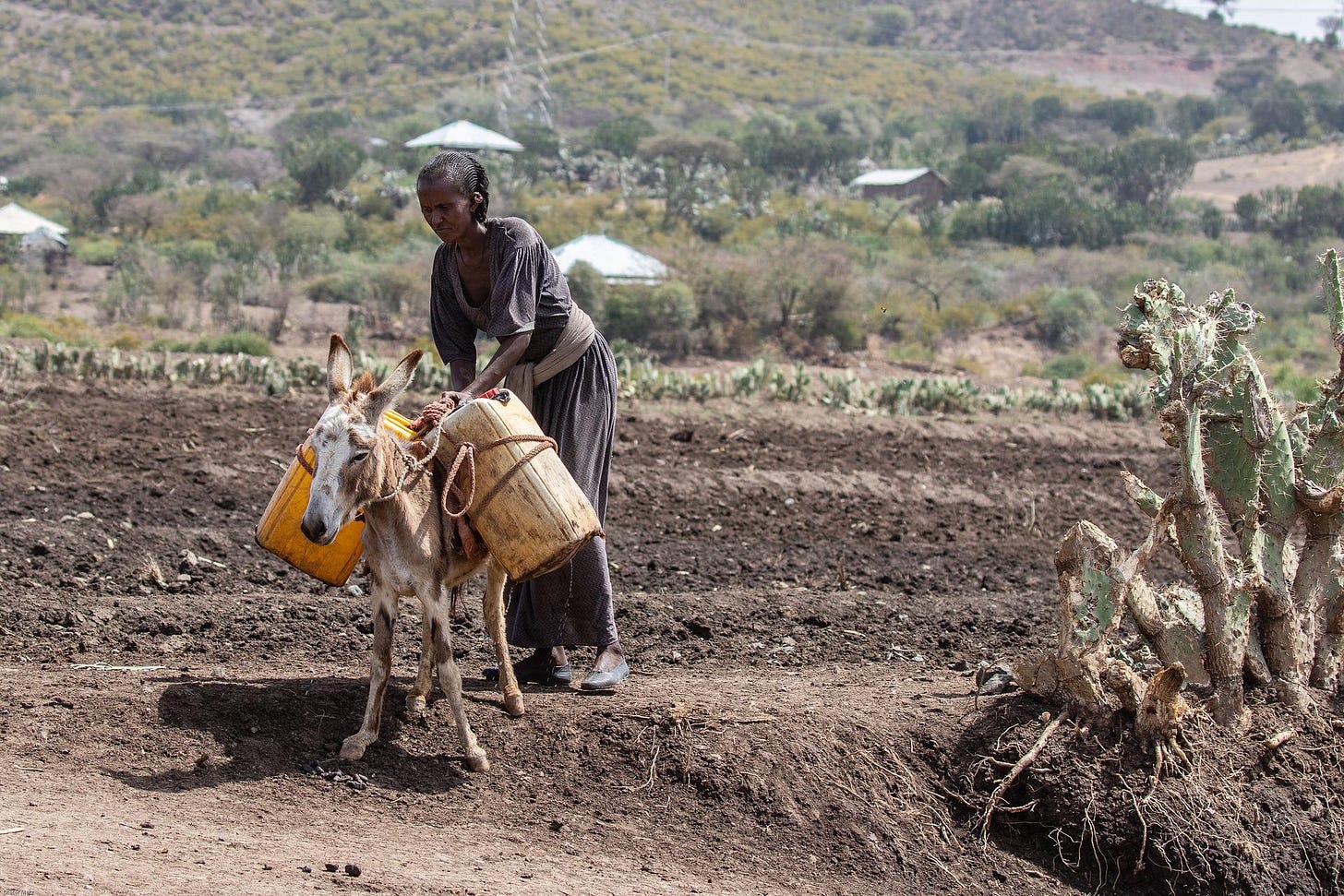

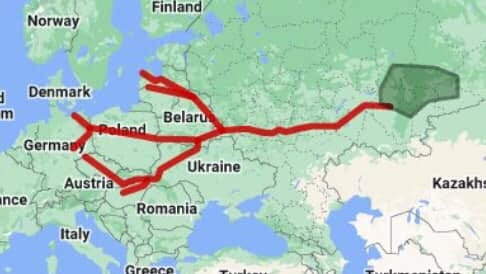
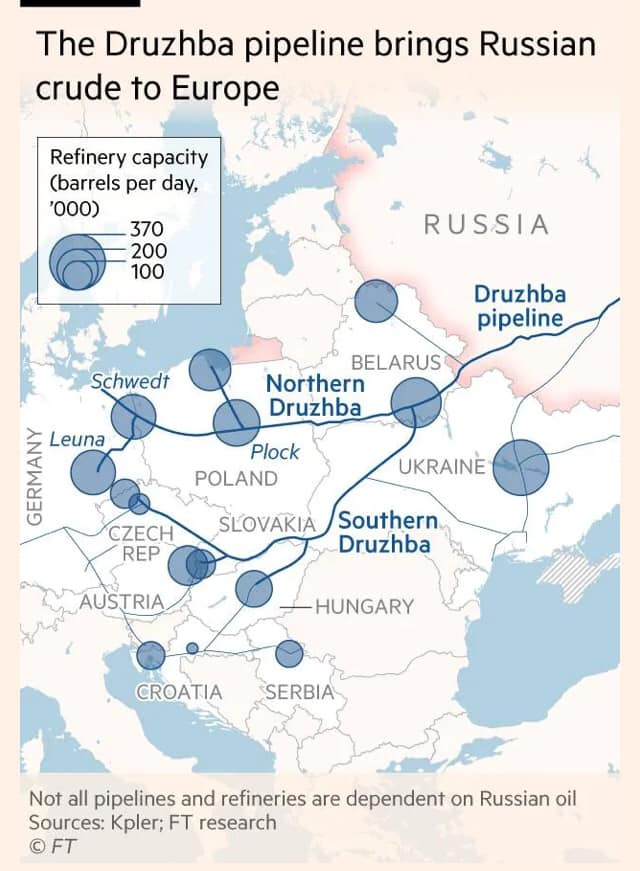

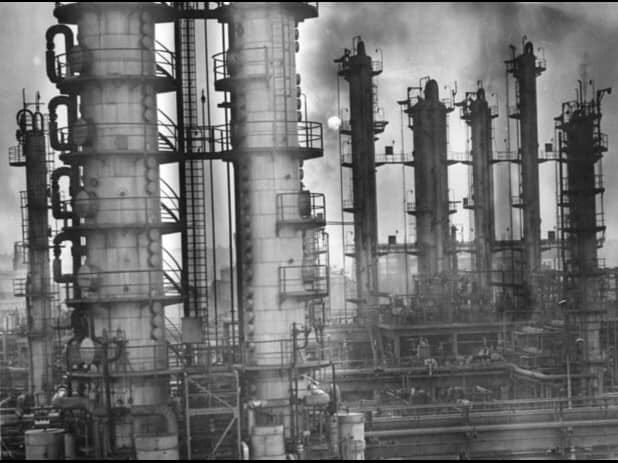
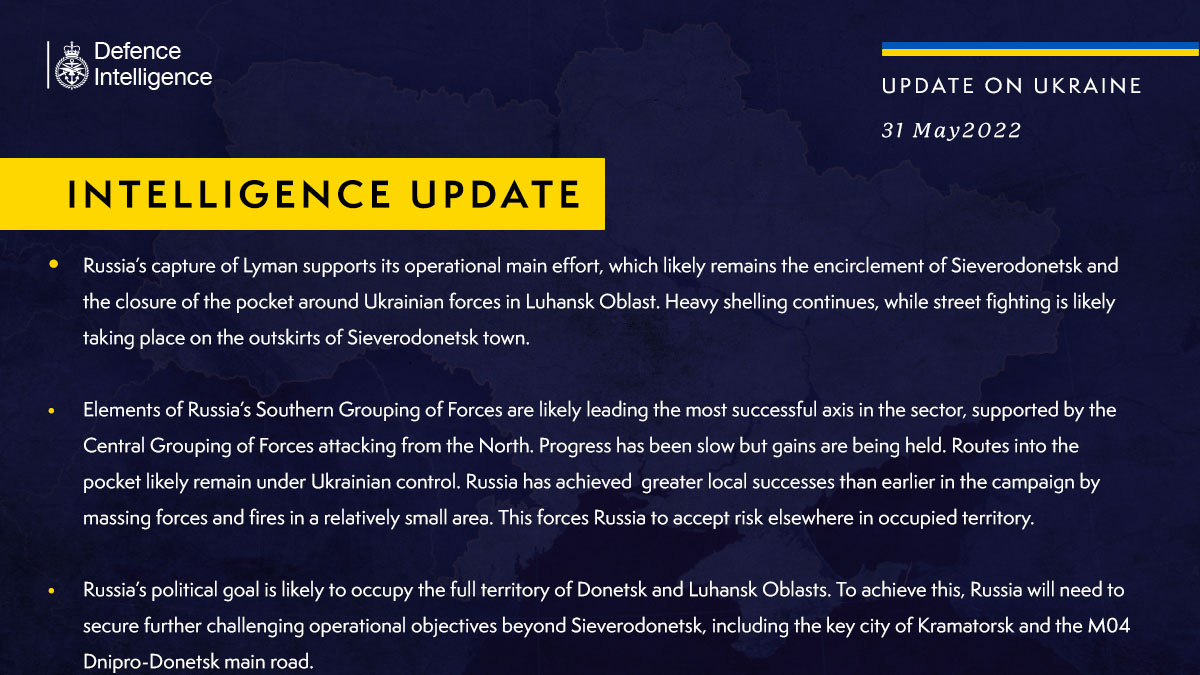
"The Russian media and political system is designed to keep Putin in power regardless of what happens in the outside world."
How many Americans would welcome control to this extent.